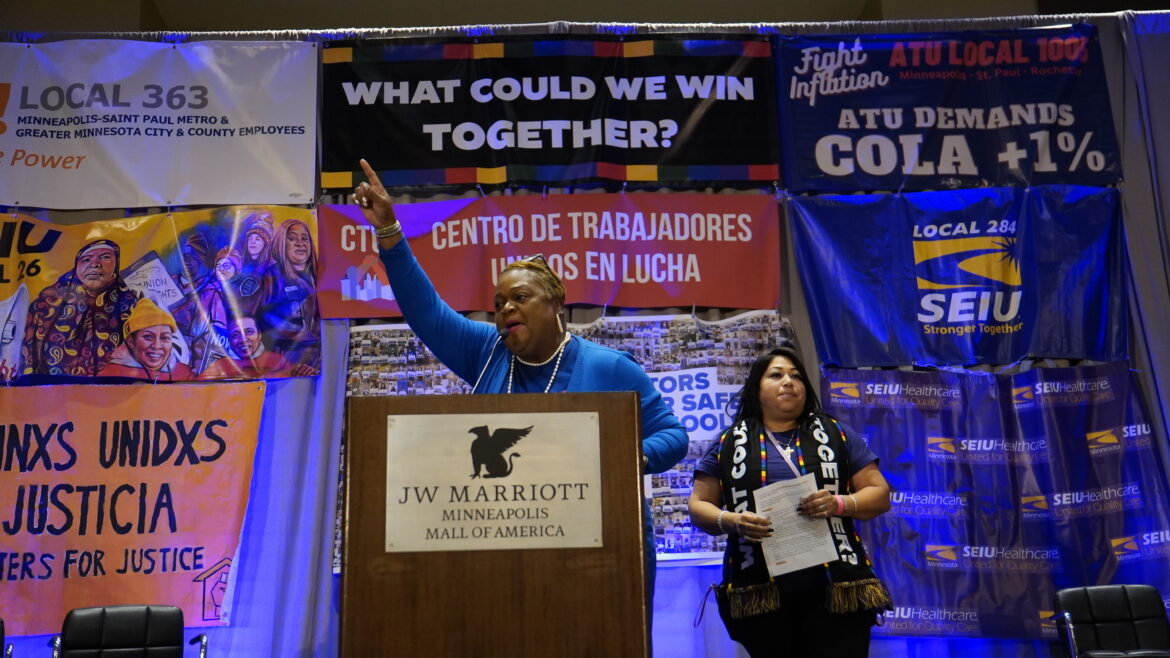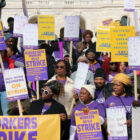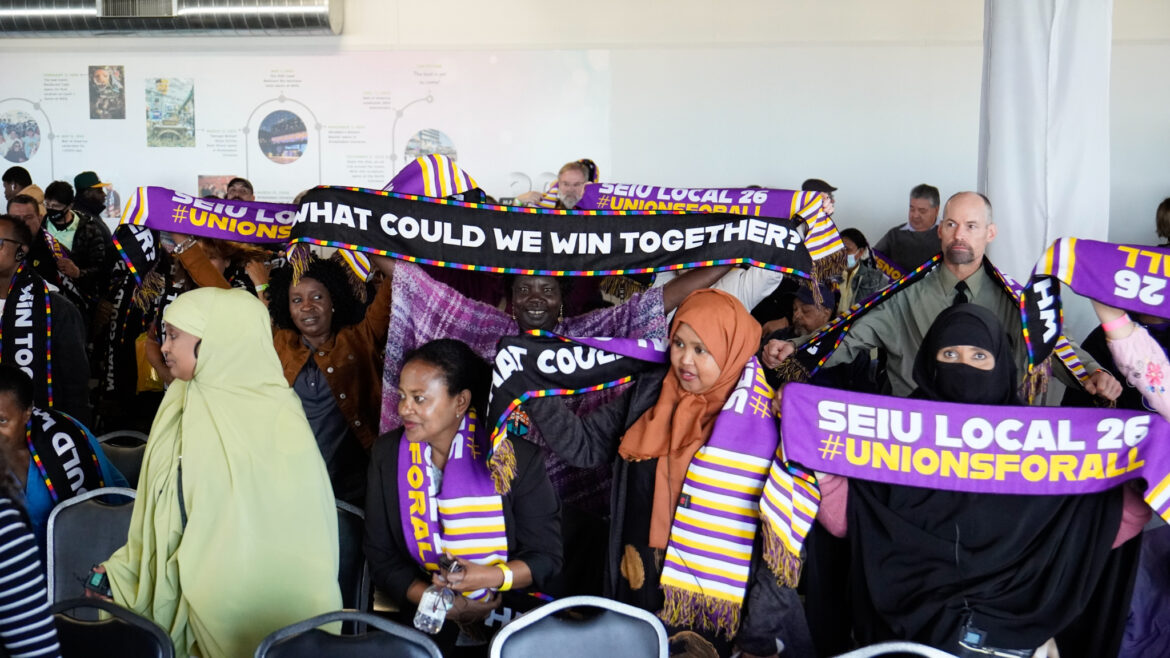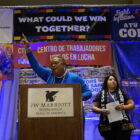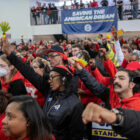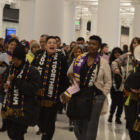Para Elbida Gomez, la temporada festiva no se marca con alegría o tiempo con familia, sino un aumento drástico en su carga de trabajo—limpiando baños y oficinas, sacando la basura, trapeando y limpiando comida del piso de la cafetería para empleados.
La madre de dos, de 43 años, dice que es una de solo dos personas cuyo trabajo principal es limpiar la sucursal de Cabela’s—una cadena de tiendas que venden artículos de caza, pesca y campamento—de Woodbury, Minnesota. Aumenta el tráfico peatonal en lo que los clientes hacen sus compras navideñas. Los padres hacen fila con sus hijos para tomarse una foto con Santa Claus. El piso se cubre con chocolate, envolturas de dulces y huellas, y, cuando empieza a nevar, la entrada de la tienda está perpetuamente cubierta de sal y arena, dice.
“Hay poco tiempo y mucho trabajo”, dice Gomez, quien ha hecho trabajo de limpieza desde que se mudo a los Estados Unidos de Honduras hace unos 15 años.
Pero en un sector que trata—literalmente—de sanitizar las experiencias festivas de otras familias, a ella se le niega la oportunidad de relajarse y festejar con su propia familia. Gomez no recibe vacaciones pagadas de su empleador, Carlson Building Maintenance, que se contrata para limpiar a Cabela’s.


